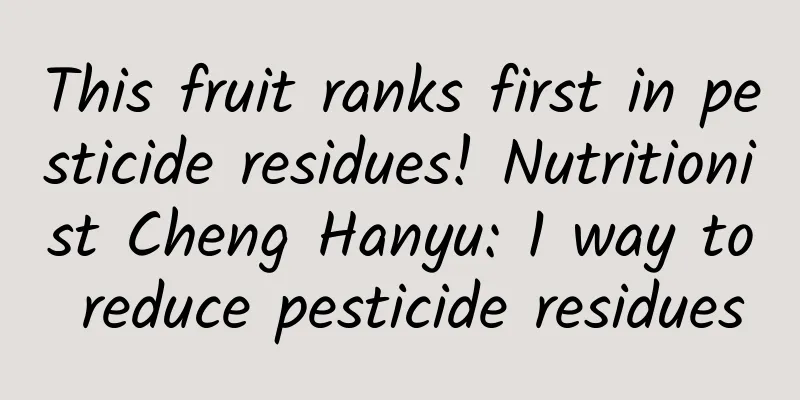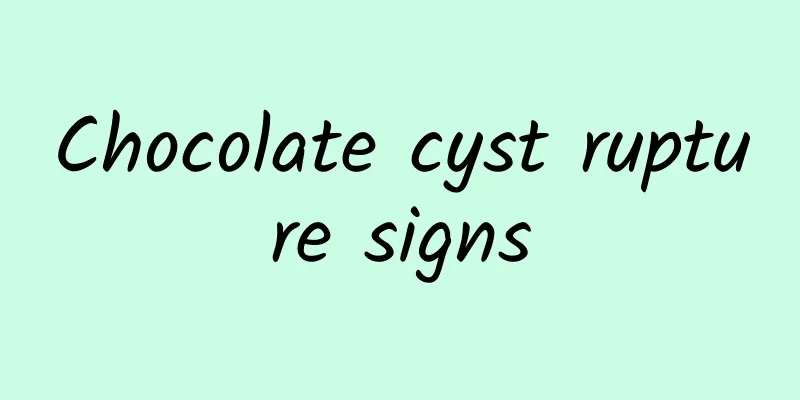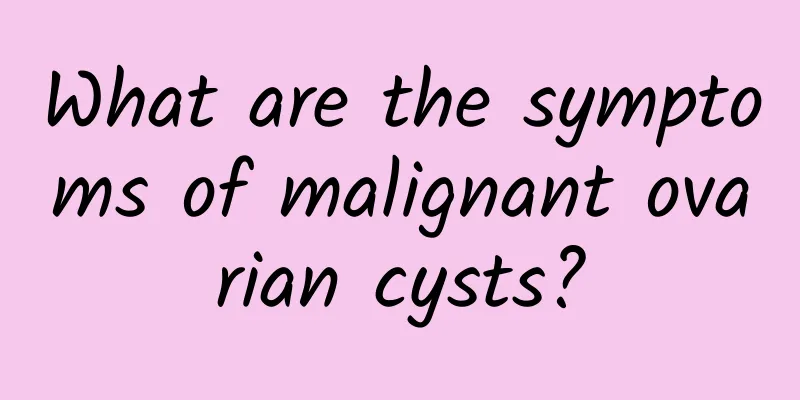This fruit ranks first in pesticide residues! Nutritionist Cheng Hanyu: 1 way to reduce pesticide residues

|
Newly released! Taiwan’s fruit pesticide residue ranking list! According to the "110 Years of Taiwan's Fruit and Vegetable Agricultural Products Pesticide Residue Monitoring Research Results Report" recently announced by the Ministry of Agriculture, passion fruit has been ranked first for three consecutive years among fruits with the highest pesticide residue rates, followed by watermelon and papaya. Strawberry, the fruit with high pesticide residues that most people would think of, is ranked fifth. The Ministry of Agriculture sampled 4,119 samples of fruits from general orchards, testing a total of six major categories of fruits, including "large berries", "small berries", "citrus", "pears", "stone fruits" and "melons and fruits". The results showed that the unqualified rate of random inspections was 2.2%, with fruits and vegetables having the highest rate (4.7%). Nutritionist Cheng Hanyu said that Taiwan's abundant fruits all year round are diverse and delicious. Eating fruits is a very happy thing. Fruits provide a variety of vitamins and minerals, especially vitamin C to help anti-oxidation, potassium to stabilize blood pressure, and fruits also contain various flavonoids, anthocyanins and other phytochemicals that enhance the body's protective ability. Eating fruits raw is a good choice to easily obtain more vitamin C and phytochemicals. The harm of pesticides to the human body varies depending on the type. Excessive intake can cause poisoning, and long-term accumulation can cause a burden on the liver and kidneys. Fortunately, the only fruits on the list that can be eaten directly are strawberries, Indian dates, and wax apples, which are eaten with the skin. Most other fruits have skins. However, we still remind everyone to develop good habits and wash the fruits before cutting and peeling them. Because when we peel the fruits, the pesticides on the skin of the fruits may accidentally get on to the flesh and be eaten. TOP16 Fruits with Unqualified Rates of Pesticide Residues1 Passion fruit 14% 2 Watermelon 7.1% 3. Papaya 6.6% 4 Lychee 5.6% 5 Strawberries 4.7% 6 Longan 4.3% 7 Indian dates 4.1% 8Cantaloupe 4.1% 9Cantaloupe 3.5% 10Loquat 3.3% 11 banana 3% 12 lemons 2.5% 13. Mango 2.4% 14 Orange 2.3% 15 Sugar Apple 2.2% 16 Wax Apple 2.2% (Photo taken from nutritionist Cheng Hanyu’s Facebook page) If you don't want to eat pesticides, here are two tips for buying fruits:Nutritionist Cheng Hanyu reminds you that if you don’t want to ingest pesticides, grasp these 2 tips when buying fruits! 1. Seasonal Fruits Pesticides are used to protect plants. Fruits and vegetables that are grown at the right time, in the right place, and in the right climate, soil, and environment are easier to control with pests and diseases, and less pesticides are used. Therefore, there is usually less pesticide residue on seasonal fruits. 2.Mark recognition stamp Fruits that are often on the list must be purchased with labels that clearly indicate where they are sold, such as the organic agricultural product label, the traceability barcode for agricultural and grain products, the CAS Taiwan Excellent Agricultural Products label, and the TAP agricultural product label with a production and sales history, which can all be used as references. If you don’t want to eat pesticides, wash the fruit like thisIt’s super easy to grasp 1 principle: Use running water to “rinse + soak for 15 minutes” to reduce pesticide residues! Nutritionist Cheng Hanyu said that according to research, vegetables cannot be washed by just soaking, but must be washed under running water! Flushing and soaking in running tap water can reduce pesticide residues by 77% because the force of running water can help clean the surface of fruits and vegetables, as well as surface bacteria, pesticides and dirt in the gaps. What if you just soak the vegetables there? It can only reduce pesticide residues by 51.4%. However, not all pesticide residues can be removed by washing. (Photo taken from nutritionist Cheng Hanyu’s Facebook page) Whole fruits such as strawberries, dates, and wax apples Wash each fruit with running water and then remove the stems. Also, pay special attention to cleaning any sunken areas on fruits like dates and wax apples. Fruits with skins such as passion fruit, oranges, and lychees For fruits that need to be peeled before eating, remember to wash them before cutting to avoid cross contamination and ingestion of pesticides. Nutritionist Cheng Hanyu reminds that if you peel or peel fruits before eating, you should remember to wash them before cutting them to avoid cross contamination and ingestion of pesticides. (Photo provided by nutritionist Cheng Hanyu) Three major groups should pay special attention to the problem of pesticide residuesNutritionist Cheng Hanyu finally reminded that three major groups should pay special attention to the problem of pesticide residues, including children, pregnant women, and people with poor liver and kidney function. The harm of pesticides to the human body varies depending on the type. Excessive intake can cause poisoning, and long-term accumulation can cause a burden on the liver and kidneys. Long-term and excessive pesticides are not good for the health of children and pregnant women, and may cause hormonal imbalances, cancer, or damage to brain development and the nervous system. Nutritionist Cheng Hanyu Facebook |
Recommend
Is it beneficial to lose weight if shiitake mushrooms replace staple food? Expert: Not feasible
Internet rumor: "Shiitake mushrooms are low ...
Do chubby girls often have uterine fibroids? Zhou Zonghan: Drink 1 weight loss tea to get rid of phlegm and dampness
What? Excessive body fat may actually contribute ...
What to do if cervical erosion is third degree
Third degree cervical erosion does sound a bit wo...
Do you often suffer from pain, frozen shoulder, and stiff shoulders and neck? Learn 3 stretching exercises to improve!
Basic warm-up 1. Stretching Exercises – Waist Tur...
Under what circumstances will menstruation be delayed
There are several reasons for delayed menstruatio...
Patients must understand the care methods of vulvar leukoplakia
The appearance of vulvar leukoplakia has seriousl...
What are the Chinese patent medicines for treating amenorrhea?
What are the Chinese patent medicines for treatin...
Explain the daily diet of menopausal women
Menopause is a physiological phenomenon of women,...
Korean style is in fashion! Korean models reveal their beauty secrets
If you often pay attention to Korean models and l...
What is the best way to clean vulva itching?
What is the best way to clean vulva itching? The ...
What are the main symptoms of irregular menstruation?
Irregular menstruation is a common phenomenon in ...
What are the causes of irregular menstruation? Women should pay attention to these 4 things during their menstrual period?
Women's menstrual period is a special stage. ...
What should I not eat after having an abortion? What should I eat after having an abortion?
What should I not eat after having an abortion? W...
Subendometrial fibroids symptoms
Subendometrial fibroids symptoms: Uterine fibroid...
Where is the best place to get uterine fibroid surgery?
Where is the best place to get uterine fibroid su...









